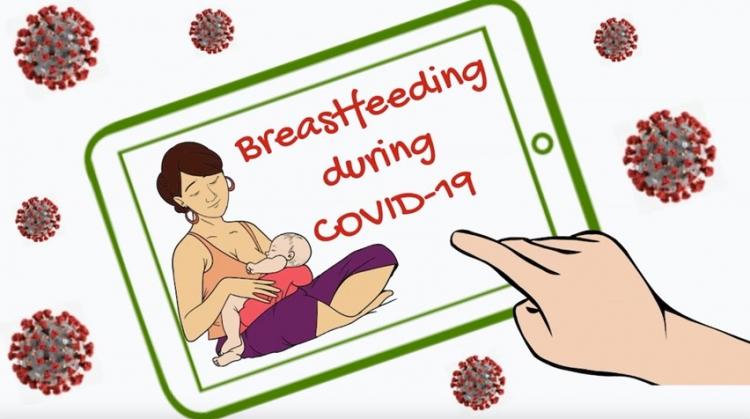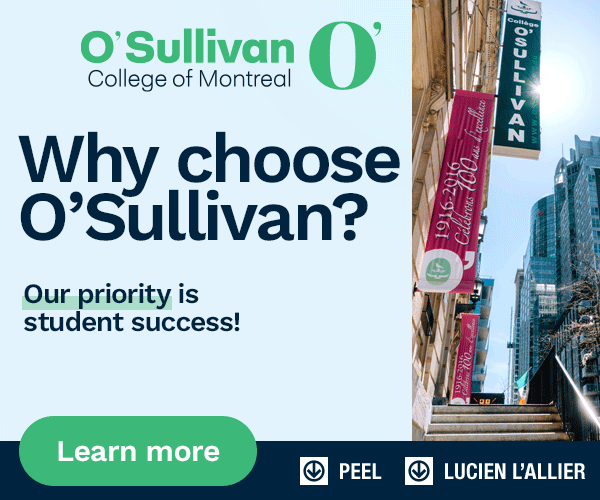
Dr. Hirani's new video provides the latest knowledge on breastfeeding during the pandemic. Photo: U of R Photography
With the alarming spread of COVID-19 this past winter, researchers in universities and institutions across Canada began considering how they could apply their knowledge and expertise to help combat the virus for the benefit of Canadians and the world.
"There were so many things going on during the COVID-19 pandemic that I thought, breastfeeding mothers are going to need information and support," said Dr. Shela Hirani, Associate Professor in the Faculty of Nursing at the University of Regina, who is a child health-care professional, researcher, and lactation consultant.
"As a result of social distancing requirements, many women do not have regular contact with health care professionals or breastfeeding counselling services," explained Hirani. "There are also growing myths and misconceptions surrounding breastfeeding." Hirani felt a responsibility to help, educate, and support mothers who have babies during the pandemic.
"When you know about and have access to evidence-based, scientific information you need to give back to the community in a medium they can understand," added Hirani.
So, she challenged herself to take on a project that would mobilize knowledge on behalf of mothers by researching, developing, and disseminating the latest knowledge on breastfeeding during the pandemic.
Thanks to $10,000 in funding from the Saskatchewan Health Research Foundation's special project grant for COVID-19-related projects and matching funding from the Faculty of Nursing at the University of Regina, Hirani worked day and night to create what ultimately became a five-minute video "Breastfeeding during COVID-19: An Information Guide". The video has received over 500 views since it was posted on May 3.
"Dr. Hirani was able to identify an issue of importance during the COVID-19 pandemic and translate it into a strong proposal, receiving the funding a very short time later," said Dr. Robin Evans, Interim Dean and Associate Professor, Faculty of Nursing. "The Faculty of Nursing is proud of her work on this project that is providing much needed information and support to an important segment of the population."

Breastfeeding during COVID-19: video promotes latest guidelines and practices. Illustration: courtesy Shela Hirani
To create the video, Hirani first conducted an evidence-based literature review of the leading health authorities, such as the World Health Organization, World Bank, UNICEF, Public Health Canada, Saskatchewan Health Authority, and Centres for Disease Control and Prevention, then framed and disseminated the latest recommendations and guidelines for breastfeeding practices in a way that the public can easily understand and access.
"I made sure the video was not targeting only one specific ethnic group," said Hirani, describing the representation of women of diverse races and ethnicities in the video.
The video also provides important information showing best hand-washing practices and how-to advice for making inexpensive homemade disposable masks, as well as offering alternative feeding options if breastfeeding is not possible. Hirani has purposefully used plain language and self-explanatory images so that viewers don't need to be fluent in English in order to understand the recommendations.
Although the pandemic has shut down many face-to-face outpatient services, like lactation consultations for mothers, and health lines are overwhelmed with callers, YouTube and social media channels have opened up new avenues for the public to find information they need.
"I created a Facebook page Breastfeeding during COVID-19 and have more than 160 followers," said Hirani. "I post and update any new documents released by Canadian and international health authorities, so it's a comprehensive, one-stop resource."
Combatting misinformation or a lack of information is crucial.
"The new guidelines say that during COVID-19 it's safe to continue breastfeeding," explained Hirani. "If the mother is suspected to have or has COVID-19, there are some precautions she should take, but she has to continue breastfeeding because the benefits of breastfeeding during this time are greater than the risks involved."
According to Hirani, not only is breastfeeding safe and provides complete nutrition for the baby, but breastmilk is also essential for preventing infection.
"If a mother has tested positive for COVID-19, her breastmilk will be stronger because it has all the antibodies, even more than a vaccine can provide for the baby," stressed Hirani.
During National Nursing Week May 11-17, Hirani will be increasing promotion of her video through online nursing magazines, social media, and her collaborators at the United Way, the Regina Open Door Society, and the Breastfeeding Committee of Saskatchewan.
"The Faculty of Nursing is planning to adopt the video for use in their child health and public health courses for the 2020 Spring/Summer semester," said Hirani. She also plans to send the video to nursing faculties at other universities to use in their curriculum.
Posting the video online has helped Hirani to understand quickly the impact that her knowledge mobilization project is having and to gauge the reach of her dissemination practices. Initially, her plan was to target the video to mothers in Saskatchewan and Canada, but she has found that many people are watching it in the United States and elsewhere. Early feedback from viewers has been positive.
"When I saw the international community mentioning that the video provides useful information in easy to understand language and is user friendly, those comments really boosted my confidence as a researcher," said Hirani.
She will continue to gather feedback from viewers, and hopes to translate the video into additional languages. Currently, she is working on additional research proposals to support vulnerable populations, especially immigrants and refugee mothers with young children.













